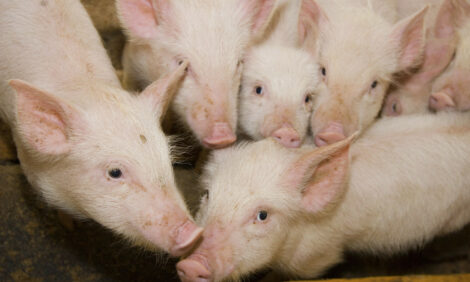



Canada's Livestock Producers Have Role in Reducing Antimicrobial Resistance
CANADA - A Professor with the University of Saskatchewan says the livestock industry has a role to play in contributing to reducing antimicrobial resistance, writes Bruce Cochrane."The Use of Vaccines and Our Social License to Produce Pork" is being discussed as part of the 2016 Saskatchewan Pork Industry Symposium.
Dr John Harding, a Professor and Graduate Chair of the Department of Large Animal Clinical Sciences at the University of Saskatchewan, says, when it comes to social license, issues on the public's radar include antimicrobial resistance, drug use in general and judicious drug use and there's no question, as drug use increases so does antimicrobial resistance.
Dr John Harding-University of Saskatchewan:
Social license is a new term to pork production, a relatively new term.
We've used it in society for different concepts over the years but I think it's something that we're just really getting our minds wrapped around.
Essentially what it describes is a level of acceptance or approval that is continually granted to an organization that really allow that organization to continue to operate freely with the approval and with good conscience.
I think we have to keep in mind that livestock production units will be in increasing scrutiny.
The public is much more aware of what happens in animal agriculture and we have to be aware that antimicrobial resistance is an issue for the industry.
It's an issue also in human medicine but I think we're beyond the point of blaming the human side for all of the problems and we need, as an industry, to accept that we have a responsibility for curbing antimicrobial resistance as well.
Dr Harding says where producers or industries are exceptional stewards, the industry will be viewed very highly and will be allowed to operate.
He says in a case where a farm pollutes or acts irresponsibly the public perception of the industry might slide and the pressure to continue to operate may mount over time.






